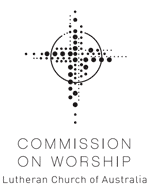Liturgy and Prayers - Sunday, 4 June 2023 – Holy Trinity, First Sunday after Pentecost, Year A.

Liturgy in one document: Liturgy in One Document, Holy Trinity
Opening sentence
Praise the Father, and the Son, and the Holy Spirit.
Praise and adore him forever.
Praise the Lord in the heights of heaven.
Praise and adore him forever.
Holy, holy, holy, Lord God Almighty.
Praise and adore him forever.
He was and is and is to come.
Praise and adore him forever.
OR
Holy, holy, holy, the Lord God the Almighty,
who was and is and is to come. (Rev 4:8 NRSV)
OR
Holy, holy, holy, is the Lord God of hosts.
All the earth is filled with his glory. (Isa 6:3)
Prayer of the day - (Collect):
Traditional
Almighty and eternal God,
since you have given us grace,
by the confession of the true faith,
to acknowledge the glory of the eternal Trinity,
and to worship the Unity
by the power of your divine majesty:
Keep us firm in this faith,
and defend us forever from all evil;
for you live and reign,
one God, now and forever.
Amen.
Modernised Traditional
Almighty and eternal God,
you have given us faith
to affirm the glory of the eternal Trinity
and to worship you as One.
Keep us firm in this faith
and safe with you forever.
For you live and reign, one God,
now and forever.
Amen.
Alternative
(Let us pray for faith in the Triune God. [silence])
Eternal God,
you have revealed yourself
as Father, Son, and Holy Spirit,
and you live in the perfect unity of love.
Give us a sure faith in you,
so that we share in your holy fellowship and life
as three Persons in one God,
now and forever.
Amen.
New
Alleluia Verse
Alleluia.
Glory to the Father, and the Son, and the Holy Spirit,
who is, and who was, and who is to come, the Almighty.
Alleluia.
OR
Alleluia, alleluia.
Go therefore and make disciples of all nations,
baptising them in the name of the Father and of the Son and of the Holy Spirit.
Alleluia.
Prayer after the Gospel
This is the gospel of the Lord.
Praise to you, O Christ.
Lord Jesus Christ, thank you that we are yours
through baptism in the name of the Father, the Son, and the Holy Spirit.
Be with us always.
Amen.
Offering Prayer
Loving Triune God,
teach us, your children,
to praise and glorify you with our lives
and all that we have,
by serving others.
Amen.
Prayer of the Church
Prayer points
National Reconciliation Week 2023
This prayer was written by Joshua Lane, Kanolu and Lardil man, and shared as part of Common Grace’s National Reconciliation Week 2023 resources. Please use this acknowledgement if incorporating the prayer into your service.
Our Father, Our Creator,
We humbly come before you today acknowledging the weight of our shared history in Australia. We acknowledge that we are all made in your image and called to live in harmony with one another. Yet, as a nation we have
fallen short of this calling, and ask for your guidance and wisdom to enable us to become agents of change in the pursuit of reconciliation with one another.
We pray for the courage to speak up for the marginalized and oppressed, and to be a voice for the generations that have suffered under the weight of racism and discrimination.
May your love and grace inspire us to take action towards healing and reconciliation, and to work towards a future where all are treated with dignity and respect.
Help us to listen to the voices of those who have been silenced for too long, and to work together to see restoration and healing.
May we be guided by your love and grace, and may our actions be a reflection of your goodness.
May your Holy Spirit guide us towards a future where love, mercy, and compassion reign. We pray for your hand to be upon us as we work towards reconciliation, and we entrust our efforts into your hands.
In Jesus’ name we pray,
Amen.
Additional Prayer Points
Services with Holy Communion:
Preface
It is indeed right and good,
Lord God, holy Father,
that we should at all times and in all places
give thanks to you,
through Jesus Christ our Lord;
who with you and the Holy Spirit is one God, one Lord,
whom we confess as the only true God
and worship as the eternal Trinity,
Father, Son, and Holy Spirit.
And so, with angels and archangels,
and with all the company of heaven,
we adore and praise your glorious name:
Communion Invitation
Through Christ Jesus we have access to the Father by one Spirit.
(Thanks be to God.)
Come, everything is ready.
OR
The holy things of God
for the holy people of God.
(Thanks be to God.)
Come, everything is ready.
Prayer after Communion
The third prayer of the day (as listed above) may be used at this point. It may be modified as follows:
Eternal God,
you have revealed yourself to us today
in word and sacrament
as Father, Son, and Holy Spirit,
and you live in the perfect unity of love.
Give us a sure faith in you,
so that we share in your holy fellowship and life
as three Persons in one God,
now and forever.
Amen.
Dismissal
BLESSING
This seasonal blessing is used together with (ie before) the usual blessing in the order of service.
(May) God the holy Trinity,
who has created, redeemed, and sanctified you,
bring you to know and adore him as one God; . . .
DISMISSAL
Go in the peace of God, the Father, the Son, and the Holy Spirit.
Thanks be to God.
OR In the name of Christ. Amen.
Liturgical Resources
ATHANASIAN CREED
The Athanasian Creed is one of the three ecumenical creeds of Christendom. It is included in the Book of Concord among the Lutheran confessions. It may therefore be used in worship, along with the Apostles’ Creed and the Nicene Creed. In fact, it has traditionally been used in some Lutheran congregations on Trinity Sunday.
However, there are problems with using this creed in congregational worship: it is long; it is difficult to understand; it is difficult to read it in unison; the versions generally available have not been in inclusive language; and the condemnatory sentences (‘Whoever does not keep it whole and inviolate will doubtless perish eternally’ etc) can be a stumbling block to some worshippers unless explained – which is difficult in the context of worship.
The Department of Liturgics suggests ways of using this creed which avoid some of these problems. See the document here.

 Service Orders
Service Orders Readings
Readings Sermons
Sermons Liturgy & Prayers
Liturgy & Prayers Children
Children Music
Music Visual Arts & Drama
Visual Arts & Drama